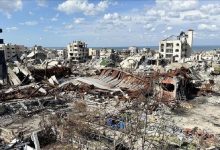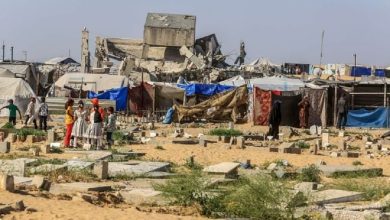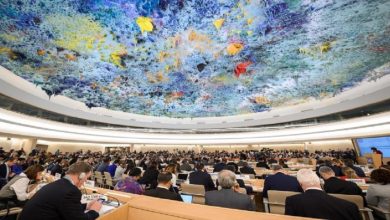Gaza War: Understanding Israel’s Endless Mission and the Cycle of Resistance

Watan-The renowned British journalist David Hearst published an article on the Middle East Eye website titled “Gaza War: Why Israel Will Never Be Able to ‘End the Mission’.”
“The insistence of the Israeli government on widely promoting the war narrative, to occupy Rafah, where 1.4 million Palestinians forcibly displaced from northern and central Gaza seek refuge, hides increasing doubts about what they will achieve when they get there.
Israeli threats to invade Rafah Around 1.4 million Palestinians sought refuge in Rafah after being forcibly expelled by the occupation army from northern and central Gaza.
Prime Minister Benjamin Netanyahu is not alone in this insistence: ‘We will do it. We will eliminate the remaining terrorist cells of Hamas in Rafah.’
Defense Minister Benny Gantz also pushes towards this goal: ‘For those who say the price is high, I say clearly: Hamas has a choice. They can surrender, release the hostages, and the people of Gaza can celebrate Ramadan.’
This ‘pride’ is aimed at domestic consumption.
It took the Israeli army four months to fight across a piece of land 41 km long and up to 12 km wide.
In comparison, it took the US-led coalition just under five weeks to bring down Baghdad in 2003.
Israel used as much ammunition in four months as the United States did in seven years in Iraq.
It is clear that something has gone wrong.
Either Israeli soldiers are not the ‘stormy soldiers’ they thought they were, or Hamas resistance and other fighters were unexpectedly strong. One thing is certain: Israeli forces did not fight with their hands tied behind their backs.
Summarizing the mood in the country, Likud Knesset member Nissim Vaturi said in the Knesset last week, ‘Whoever gets shot probably deserves it.’ And the army was trying to deliver just that.”
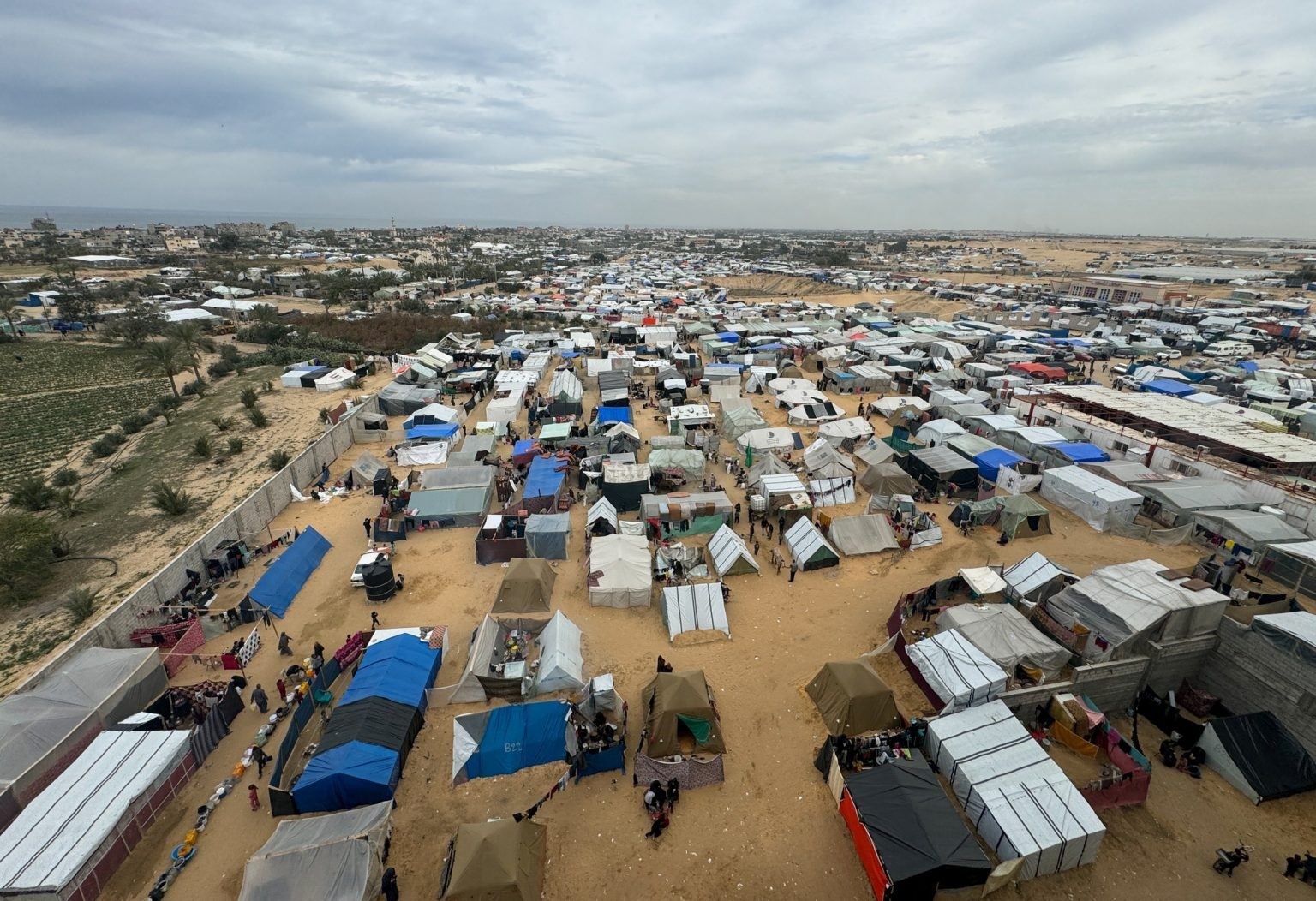
Conditions of mass displacement
The bombardment, artillery strikes, and drone strikes specifically aimed at terrorizing civilians and creating conditions for mass displacement.
Mass casualties and attacks on vital infrastructure are military objectives, not collateral damage.
The International Court of Justice clearly acknowledged this when it imposed an order on Israel to comply with the Genocide Convention.
Underneath the threat, there are glimpses of a darker reality for the ground campaign.
Israeli military intelligence, for example, believes that Hamas will remain as an armed group capable of carrying out operations against it. It says that “genuine support” for Hamas remains high among Palestinians in Gaza.
Israeli journalist Ilana Dayan from Channel 12 mentioned that these conclusions were presented to political leaders a week before by senior army officers, Shin Bet officials, and members of the National Security Council. She suggested: “In this regard, at least, there will be no absolute victory.”
Many outside Israel reached this conclusion four months ago.
Other questions are equally pressing for the top Israeli leadership: Do they have the necessary forces to conduct a major operation in Rafah and reoccupy the Philadelphi Corridor without needing to call up more reserve forces? Fatigue from the war must be starting to show.
Another set of issues is the situation with neighboring Egypt.
So far, President Abdel Fattah el-Sisi has been cooperating with Israel regarding the border with Rafah.
Sisi allows Israel to control the flow of aid to Gaza and is prepared for the influx of refugees.
The “Sinai Foundation for Human Rights” stated that the Egyptian authorities are preparing a 10-kilometer buffer zone to accommodate displaced Palestinians.
But reoccupying the Philadelphi Corridor, a 14-kilometer buffer zone along the border, would be a violation of the peace treaty signed by Egypt and Israel in 1979, although that is not enough to compel Egypt to tear it up.
The biggest fear of Egyptian military intelligence is militants infiltrating Sinai, which already witnesses entrenched rebellion.
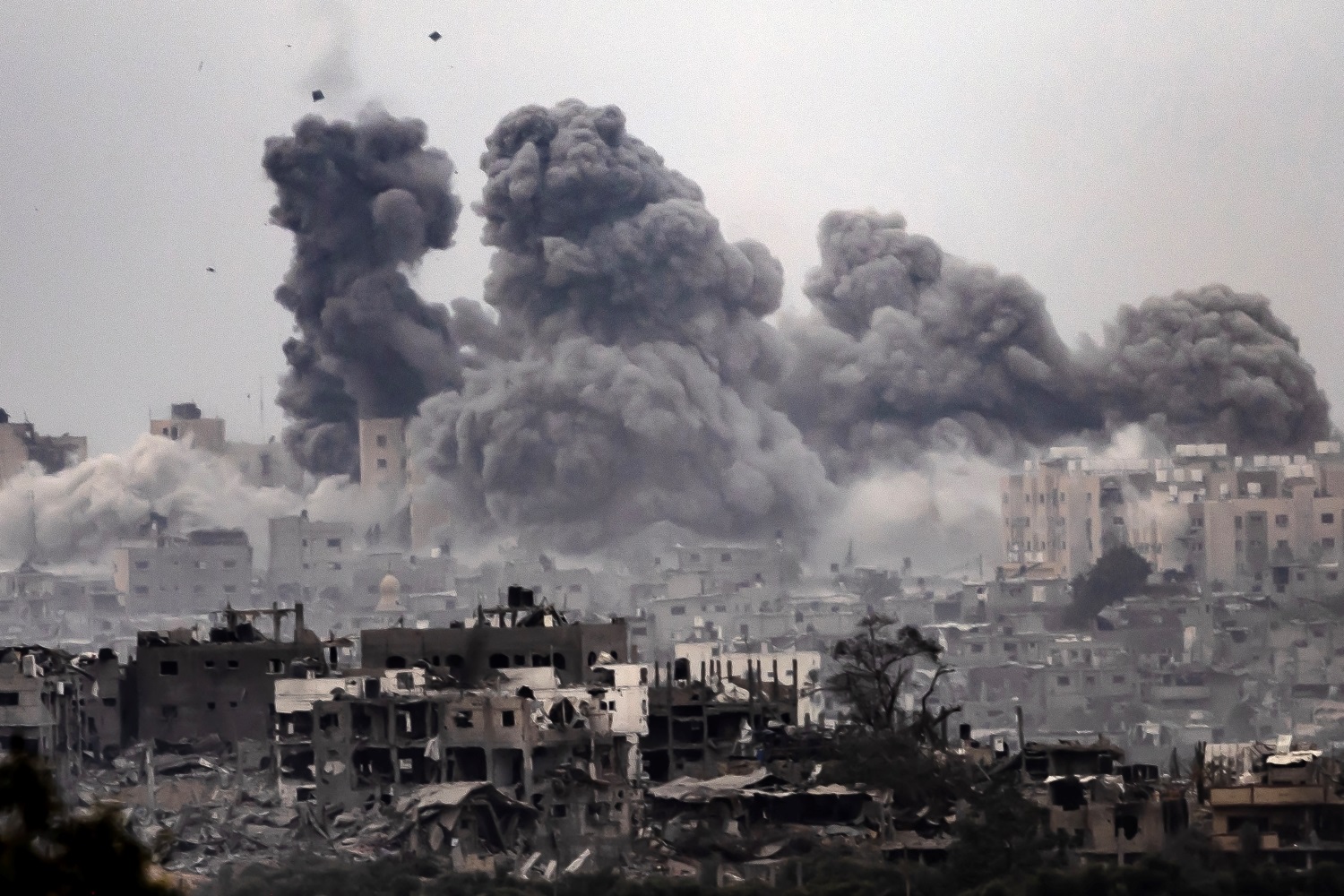
Waves of Resistance
The third factor affecting the imminent ground invasion of Rafah is Washington.
Like Ukraine, Israel realizes that its firepower far exceeds its stockpiles of ammunition. This must be constantly replenished from the United States.
It is in President Joe Biden’s hands to halt or restrict the flow of these weapons, especially as he seems to have drawn a red line regarding the need for the evacuation of Rafah refugees.
There is no evidence that Biden has used this leverage so far. Quite the opposite. But this does not mean, with the approaching American presidential elections, that he will not threaten to do so.
Therefore, it is entirely possible that the loud threats of a bloody ground assault on Rafah, at least for the time being, are part of the ongoing intermittent negotiations with Hamas over a ceasefire and the exchange of Israeli hostages and Palestinian prisoners.
But let’s set all of the above aside.
Let’s assume that the time will come when Israel controls the entire Gaza Strip. What will it have achieved, other than more than 30,000 deaths?
Netanyahu’s first mistake is thinking that if he eliminates what are supposed to be the last four brigades of Hamas in Rafah, that will be the endgame.
Hamas is not an army with a limited number of fighters. It is a rebellion, an idea, transferrable from one family to another, from one generation to the next, or indeed from one movement to another. The Palestine Liberation Organization under Arafat was secular. Hamas is Islamic.
It doesn’t matter which side holds the torch, but the torch itself continues to burn. And Hamas shouldn’t delude itself into thinking it can achieve military victory against a much larger conventional force.
But neither the Algerians, nor the African National Congress, nor the Irish Republican Army won on the battlefield. Everyone fought to get to the negotiating table. So, even if Israel were to force Hamas out of Gaza, and I don’t believe it can, will it triumph?
Israel has declared victory several times in this 75-year conflict. It declared victory in 1948 by displacing 700,000 Palestinians from their cities and villages.
Israel thought it had crushed three Arab armies in 1967. Ariel Sharon declared victory after 15 years when he forced Yasser Arafat and the PLO out of Beirut. Five years later, the first intifada erupted.
When peace talks collapsed, the second intifada erupted. Israel once again thought it could crush the Palestinian national cause by besieging Yasser Arafat in his headquarters in Ramallah and poisoning him. Was that a victory?
Today, Israel believes it can crush Hamas in Gaza by killing four men, including Yahya Sinwar and Mohammed Deif, who hold special status.
The list of Palestinian leaders killed in this long conflict is already long. Abdel Qader al-Husseini, a Muslim preacher and leader of Arab national struggle, was killed by the British in 1935.
Kamal Adwan, a prominent leader of Fatah and the PLO, was killed in an Israeli raid in Lebanon in 1973; Khalil al-Wazir, one of Arafat’s top aides, was assassinated in his home in Tunisia by Israeli commandos; Ahmed Yassin, the spiritual leader of Hamas, was killed when an Israeli helicopter fired a missile at him as he left dawn prayers in Gaza City.
Similarly, Abdel Aziz al-Rantissi, a co-founder of Hamas, was killed by missiles fired from an Apache helicopter; Fathi Shaqaqi, founder and secretary-general of Islamic Jihad, was assassinated in Malta by Mossad agents; and Abu Ali Mustafa, the Secretary-General of the Popular Front for the Liberation of Palestine.
But what have these killings achieved other than unleashing another stronger wave of resistance, heralding another generation of fighters hardened by the hands of the occupiers?
Memory of Massacres
History is propelled by collective memory. Memories of massacres in the 1948 war, such as Deir Yassin, Sabra and Shatila in 1982, are passed down through generations.
There was no internet at that time, and there were only a few video clips. Yet the words were powerful enough to inspire future generations to resist.
Israel has greatly benefited from a set of video clips showing killings carried out by Hamas and other fighters from Gaza on the kibbutzim on October 7th.
Operation Flood of the Al-Aqsa Mosque Palestinian resistance factions carried out a large and powerful operation by invading settlements in the Gaza periphery on the morning of October 7th.
If this video terrifies its viewers, we can only imagine the impact of four months of social media clips of the massacres committed by Israeli forces in Gaza on future generations of Palestinians.
The catastrophe or Nakba that Israel committed in Gaza over the past four months has been documented better than the catastrophe of 1948.

Benjamin Netanyahu
These images will remain on the internet forever. Why does Israel think this catastrophe will evaporate from public consciousness when the fighting ends?
The population of Jordan is 11.15 million, with slightly more than half of them being Palestinians descended from refugees expelled from the West Bank, East Jerusalem, and Gaza.
Even if we exclude Jordanian tribes in the West Bank – who spoke out loudly about Gaza like Palestinians – this means that the number of Palestinians in Jordan is three times that of Palestinians in Gaza.
They are angry, relatively prosperous, and have access to the flourishing arms market. Moreover, Jordan has borders that are easy to penetrate with Syria and Iraq, where Iran-backed groups are eager to engage.
This makes Jordan the ideal recruiting ground for the next wave of Palestinian fighters.
Now, who in their right mind would seek to calm their southern borders from enemy attacks at the expense of reactivating the much longer and insecure eastern borders? Who will replace 60 kilometers of insecure borders with 482 kilometers?
Blind Victimhood
Israel and its supporters only see their own history and listen to their own voices. They cannot see what it means to be on the receiving end of their expanding state.
They cannot see that the Palestinians in Rafah, who have been displaced multiple times during their exodus to the south, are themselves descendants of refugees from towns and cities that are now part of Israel – like Be’er Sheva, Jaffa, and the Negev.
They cannot see the strong symbolism of what they are doing. In their attempt to crush Gaza, they are trying to crush the entire Palestinian nation. If Israel succeeds in Gaza, there will not be a Palestinian in Israel, or in occupied East Jerusalem, or the West Bank, who would not believe they would be next.
Israel’s sense of victimhood and historical destiny blinds it to the suffering it causes. In its view, there can only be one victim of history: the Jewish victim.
There is no place for anyone else in this worldview. Palestinians are not just invisible, they are non-existent. But the Palestinian national cause certainly exists.
Last year, Netanyahu announced the end of the conflict with the imminent signing of agreements with Saudi Arabia known as the Abraham Accords.
A few weeks later, Israel became embroiled in the longest war it has fought since 1947. Today, this war has propelled the Palestinian cause to the top of the human rights agenda worldwide.
Yet Netanyahu’s army, like a gambler throwing dice for ever higher stakes, moves from hospital to hospital, failing to find Hamas’s hideouts but certainly destroying Gaza’s healthcare system. It has moved from north to south proclaiming that victory is imminent.
Benny Morris, the former Israeli left-wing historian turned hawk, told the Frankfurter Allgemeine newspaper that he hates Netanyahu intensely: “He’s a conman. But he’s right that the war must continue until Hamas is crushed, if only because throughout the region, we will crush it.” We will be seen as losers if we don’t finish the job.”
I have news for Morris, the historian. Israel will never “finish the job.”
It has only two choices: either follow in the footsteps of Itamar Ben Gvir and Bezalel Smotrich in their quest to turn the war on the ground into a religious war, or sit down with a Palestinian leadership empowered to discuss how to share the land on equal footing.


